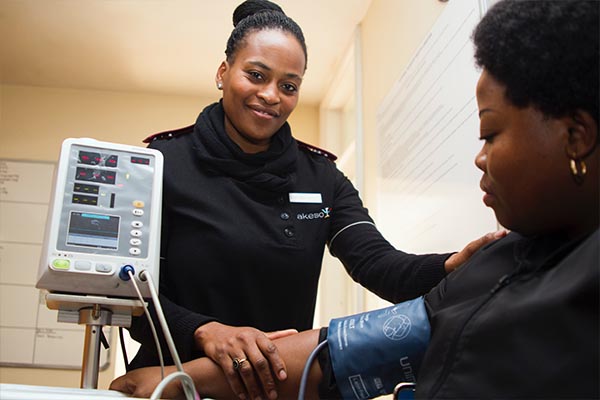Unwinding the Intricacies of Choosing the Right Medical Institution Expertise
In the trip of seeking a medical job, one of the pivotal decisions aspiring medical experts deal with is picking the right expertise. As the medical landscape continues to progress, understanding the intricacies that underpin this decision-making procedure becomes progressively important.
Factors to Take Into Consideration
When taking into consideration a medical institution field of expertise, it is critical to carefully assess different essential variables to make an educated choice. One critical variable to consider is personal interest and passion. Picking a specialization that lines up with your interests makes certain long-lasting work contentment and inspiration. In addition, examining the work market demand for different specializeds is important. Selecting a specialization in high demand can result in far better work prospects and potentially greater salaries.
Some specializeds, such as emergency medication, may need irregular hours and high tension levels, influencing personal wellness. Particular specialties, like orthopedic surgical procedure, have a tendency to be a lot more profitable than others due to greater treatment quantities and compensation rates.
Lastly, examining the length of training and academic demands for every specialization is crucial. Some specialties, such as neurosurgery, have extensive training durations that may not align with personal timelines or preferences. By weighing these elements thoughtfully, aspiring physician can make a well-informed choice when choosing their clinical institution field of expertise.
Individual Interests and Enthusiasms
When pondering on a clinical college field of expertise,Taking into consideration one's personal passions and interests is paramount. Medical students spend years sharpening their skills and understanding in a certain area of medication, making it vital to pick an expertise that lines up with their innate inspirations. Assessing what truly thrills and drives them can lead to a much more fulfilling and successful job in medicine.

Additionally, personal interests can sustain motivation and commitment throughout the requiring journey of medical training. When confronted with challenges, a genuine passion for their selected field of expertise can work as a driving pressure, sustaining their commitment to overcome challenges and achieve excellence in their field. Inevitably, straightening individual rate of interests with a medical institution specialization can lead to an extra purposeful and satisfying profession in medicine.
Lifestyle Preferences
Checking out lifestyle preferences is a crucial factor in determining the most appropriate clinical school specialization for aiming health care experts. The requiring nature of medical jobs frequently implies that the way of life connected with each expertise can differ dramatically.
Taking into consideration way of life choices is vital as it straight influences personal wellness, task satisfaction, and total top quality of life. Individuals that value predictability and routine functioning hours might find specializeds like family medication or psychiatry more attractive. Conversely, those that prosper in high-stress atmospheres and want to commit to requiring schedules may be far better suited for specializeds such as cardiology or trauma surgical procedure.
Ultimately, aligning your medical college field of expertise with your lifestyle preferences can add to a much more meeting and sustainable profession in healthcare. Making an informed decision based on these factors can cause a better work-life harmony and overall task contentment.
Future Job Potential Customers

Certain specialties, such as dermatology and orthopedic surgical procedure, are understood for supplying profitable incomes and solid job security as a result of high need. Northeast Medical Institute Phlebotomy Classes Near me Stamford. On the other hand, fields like primary treatment and pediatric medicines, while vital, may have reduced making potential yet supply fulfilling client interactions. Recognizing the projected growth of a clinical specialized is critical as it can affect future task availability and competition
Additionally, improvements in modern technology and medical care policies can influence the need for specific specialties in time. click this link For instance, specialties like telemedicine and customized medicine are quickly developing, creating new possibilities for specialists with appropriate proficiency. Taking into consideration these variables can aid striving clinical trainees make educated decisions regarding their future profession paths.
Aligning Goals and Specialization
Lining up objectives with a chosen medical institution specialization is a crucial action towards an effective and satisfying occupation in the healthcare field. When picking an expertise, it is critical for striving medical specialists to very carefully consider their personal passions, passions, and values. By straightening these elements with the needs and assumptions of various clinical specializeds, people can enhance their opportunities of locating a course that resonates with their lasting job purposes.
Understanding one's objectives in medical care can substantially impact the decision-making process when choosing a medical institution field of expertise. For example, individuals who are passionate about research study and innovation may lean in the direction of specializeds like biomedical study or medical genes, whereas those with a strong wish to deal with patients directly may opt for areas such as family medication or pediatric medicines. By lining up individual objectives with the unique features and requirements of each field of expertise, medical students can lead the way for a purposeful and rewarding occupation find out this here in medicine.
Conclusion

In the journey of going after a clinical occupation, one of the critical choices aiming clinical professionals encounter is choosing the best specialization - Northeast Medical Institute Phlebotomy Classes Near me Stamford. By considering these elements thoughtfully, striving medical specialists can make an look here educated decision when choosing their medical institution field of expertise
Eventually, straightening personal rate of interests with a clinical school specialization can lead to an extra purposeful and satisfying job in medication.
The long-term trajectory of one's job within a chosen clinical institution field of expertise substantially hinges on the future job prospects associated with that specific field.In final thought, selecting the ideal medical school expertise includes cautious factor to consider of different variables, consisting of individual rate of interests, way of life preferences, and future profession prospects.